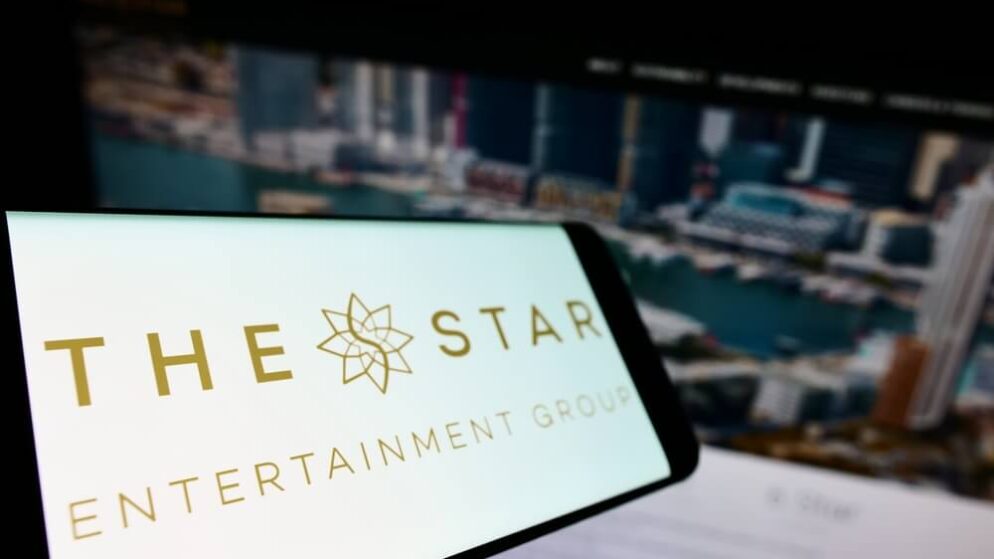

The Star Entertainment Group has managed to avoid an immediate suspension of its casino operating licenses in New South Wales and Queensland, Australia. The threat of suspension still looms if the company fails to convince regulators it has reformed its operations within the next six to twelve months.
The group operates two properties in Queensland. However, following months-long independent investigations into Star’s casino activities in New South Wales and Queensland, the company was deemed unsuitable for a gambling license in both states.
The operator has narrowly escaped the immediate suspension of its casino licenses in both states. However, regulators have made it clear that the group has more to do if it wants to maintain its social license to operate long-term.
The announcement comes when comparable markets are experiencing significant gains from their bets on legal online gambling. For instance, New York alone garnered more than $700 million in tax revenue from mobile betting during the fiscal year 2022-2023.
A Reprieve for The Star, But Reform is Required
The decision by Queensland regulator, the Office of Liquor and Gaming (OLGR), comes as a considerable reprieve for Star Entertainment and its investors. As Attorney-General Yvette D’Ath announced last month, the operator will retain its license for its Treasury Brisbane and The Star Gold Coast casinos beyond the original December deadline while continuing remediation efforts overseen by a Special Manager.
However, the extension comes with strict conditions that the company implement measures to improve governance, transparency, and corporate culture. D’Ath warned that this extension does not mean Star is now suitable; it must demonstrate further, tangible progress addressing the litany of problems uncovered last year or risk license suspension.
This follows an extensive regulatory probe that unveiled widespread issues at Star, including enabling suspected money laundering, organized crime infiltration, and failing to protect vulnerable casino patrons from harm.
On the AML front, investigators found the Star to have facilitated the laundering of millions of dollars for organized crime and high-rollers, raising serious concerns about its vulnerability to financial crime. The Australian Broadcasting Corporation’s report reveals that the group not only facilitated money laundering but also deceived a major bank and disregarded alerts from the gaming regulator regarding connections to criminals.
The company was accused of lax responsible gaming practices for turning a blind eye to patrons exhibiting signs of problem gambling and prioritizing profit over player well-being. Queensland regulators also identified a culture of complacency and inadequate oversight, allowing these transgressions to flourish unchecked.
OLGR Demand Star Overhaul
After a year-long investigation by the Queensland Commission of Inquiry, the Star was found incapable and unsuitable due to widespread failures in anti-money laundering controls and responsible gambling practices. These issues stemmed from the said poor oversight of high-roller junket players with links to organized crime and a need for effective governance systems to curb misconduct.
OLGR demanded that Star overhaul its leadership and operations to meet expected standards. The company now has six to twelve months to convince regulators it has suitably reformed and cleaned up its act or face potential license suspension. The decision aligns with an investigation that proposed the regulation of the Australian iGaming sector and a blanket ban on gaming-related advertisements.
While Star has taken initial steps like bolstering financial crime teams, OLGR Chair Sue Ellery said more needs to be done for the community to regain confidence. As a result, the group has been granted up to twelve months to satisfy regulators that it has truly overhauled operations.
NSW Also Provides Conditional Extension
Star faces a similar situation in New South Wales, where a separate probe found it enabled criminal activity through former junket partners. Last year, the NSW regulator, the Independent Liquor & Gaming Authority, decided not to revoke the Star’s casino license. Instead, it handed the group a $100 million fine, of which it has paid around $30 million, according to Brisbane Times magazine.
NSW Independent Casino Commission will extend the appointment of Special Manager Philip Crawford until June 2024 to monitor ongoing remediation at the Star. Crawford warned that this deadline is now final, and any failure to meet expectations could lead to more sanctions, including suspension of the gaming license.
The dual extension and oversight in both states underscores the coordinated regulatory approach. With Star’s primary casinos located in Queensland and NSW, it must satisfy the requirements of both jurisdictions to maintain its operating licenses long-term.
Road Ahead Depends on Demonstrating Reform
To convince regulators, market its suitability, and retain its license, Star Entertainment Group must embark on extensive and urgent reforms across multiple areas of its Queensland and NSW casino operations.
Top of the list are demands for leadership changes. Star must appoint new directors, executives, and senior managers to guide reforms. Regulators require these leaders to have suitable skills and experience to drive cultural transformation. There can be no links or ties to those previously involved in governance failures.
The company needs to prioritize upgrades to its financial crime risk management. This includes overhauling compliance systems, anti-money laundering protocols, counter-terrorism financing policies, and more.
Significant upgrades are also needed in organized crime oversight. Star must implement new measures to identify and bar criminal elements from infiltrating its Queensland casinos with updates ranging from security systems to auditing procedures.
On the responsible gambling front, it must implement measures through new patron protection initiatives, staff training programs, and oversight procedures. The goal is to identify at-risk gamblers earlier and provide meaningful support.
Finally, regulators have called for wholesale updates to Star’s regulatory reporting, compliance policies, and auditing across all areas of casino operations. General compliance systems have been deemed sub-standard.
Wrapping Up
Star Entertainment faces a crucial six months to avoid losing the right to operate in Australia’s two largest gaming jurisdictions. With billions in revenue and tens of thousands of jobs at stake, the company must back its promises with proof of real, lasting reform.



